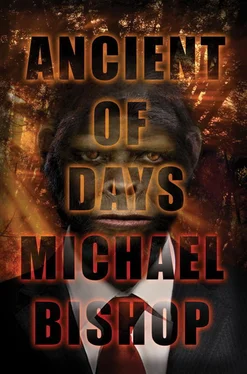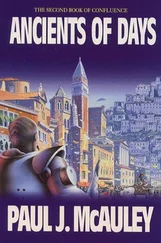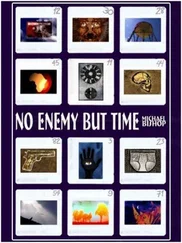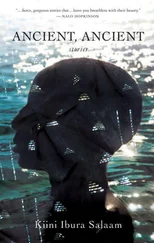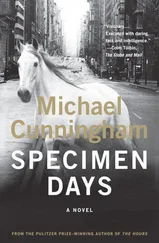“He’s done that already. Don’t you understand? His consciousness is emerging from a kind of mental Upper Paleolithic. Adam’s trying to find out who he is.”
“More birthing-stool psychobabble?”
“Only if you choose to belittle it as such.”
Adam made signs with both hands. I could not interpret them. The irony of his knowing a system of communication of which I was ignorant underscored the foolishness of my doubting his interest in theology. (If he could sign, he could just as easily genuflect.)
“He wants to know if he has a soul,” RuthClaire translated.
“So do I. Want to know if I have a soul, that is.”
“Your lack of a heart may imply something equally discouraging about your spiritual equipment, Paul.”
“It’s after midnight, kid. I can’t believe we’re discussing this.”
“What about it? Do you think Adam has a soul?”
“What kind of soul, for God’s sake? An animal soul? A rational soul? An immortal soul? All this sort of adolescent head game will get you is a migraine and a reputation as a philosophical nitpicker.”
RuthClaire flapped her nappy blanket. “Skip it. You’ve got all the sensitivity of a tire iron.” Dog-tired, I shuffled to the sofa and plopped down opposite her. She took pity and flapped an end of her blanket at me. I pulled it over my knees. “Almost like old times, hey, Paul?”
“I can’t recall having a chaperone before.”
“Livia George.”
“Livia George’s a chaperone the way Colonel Sanders is a spokesman for the Save-the-Chickens Fund.”
RuthClaire laughed, and we began to talk. Somehow, owing in part to Adam’s absorption in his book, it was almost as if we were alone in the wide, chilly room. RuthClaire told me that downstairs she had seen my growing collection of plates in her Footsteps on the Path to Man series. I had arranged the eight titles issued to date on hinged brass stands in a glass-fronted maple hutch. The plates included Ramapithecus, Australopithecus afarensis, A. africanus, A. boisei, Homo habilis, Homo erectus, Homo sapiens , and Homo neanderthalensis . The habiline, first issued back in August, bore an undeniable resemblance to the gargoyle perched on my drafting table.
“Look,” I said, “you’ve still got ten unissued plates in this series. The eight main hominids on the road to Homo sapiens sapiens are already out. What’s next?”
“Contemporary racial variations.”
“Negroes, Caucasians, Orientals?”
“I’ve already done paintings for those and some others—Oceanics, aboriginals, American Indians. The final four are up in the air because there’s unavoidable overlap. I’ll probably do Eskimos, Arabs, pygmies, and Nordics, but I could substitute Bushmen or Montagnards or Ainu somewhere in there. It’s arbitrary, of course, a way to get the number of plates up to eighteen. AmeriCred’s hollering for the last four so they can put the plates into production. Me, I’m sick of the whole rotten thing.”
“Really? You don’t enjoy doing them?”
“It’s donkeywork. I liked doing the prehistoric numbers, Adam’s portrait and all that. But these last ten are sheer commercial excess. AmeriCred wants their subscribers to pay through the nose for gewgaws. I’m a hack writing otherwise worthless potboilers.”
“Enjoy your popularity. No one’s twisting their arms.”
“It’s not that I’m doing a lousy job, but these latest plates aren’t contributing anything to the development of my art. It’s safe representational stuff. My audience consists of well-to-do old ladies and fat-cat corporate executives looking for a ‘classy’ cultural investment.” She stuck out her tongue, as if to see if there was a piece of lint or tobacco on its tip. “That’s why I’ve been so slow to finish this assignment, Paul.”
“Blame it on your pregnancy.”
“I’ve done that. It’s a lie.”
“People who regret making money are nincompoops.”
“The regret—the guilt—comes from what you do to make it. Even you know that. Right now I’m whoring.”
Adam looked up from The Problem of Pain . He made some signs translatable as “ Don’t talk rubbish ,” then went back to Lewis’s little piece of theodicy.
“Whoring? You didn’t feel that way about The Celestial Hierarchy , did you?”
“No. Those are breakthrough paintings. I avoided all the clichés—archangels with flaming swords, naked cherubs with wings on their heels, Jesus dragging his old rugged hanging tree. I did something new. It was a small miracle the series was successful. A bigger miracle it ever got commissioned.”
“It made you popular. You hadn’t bargained for that.”
“ ‘How public,’” RuthClaire quoted, “ ‘like a frog.’”
“That’s smug elitism,” I said. “It’s probably insincere, too. You pretend to despise success because there’s an old art-school attitude that figures nothing popular can be worth a damn.”
“There’s a backlash against me in the Atlanta art community because of my success. The people who count up there see my work on these stupid plates as a sellout. I do, too. Now, especially.”
“If that opinion takes in the plates you’re proud of, to hell with them.”
“It’s more complicated than that. They don’t respect what I’m doing, and I can’t truly respect it, either—not my last ten examples of porcelain calendar art, anyway.”
“They’re jealous.”
“That enters into it. But I’ve always thought myself something of a visionary. My work for AmeriCred has undermined all that. The worst thing about the backlash is that I know I’ve brought it on myself.”
The studio’s fluorescents flickered palely as the wind gusted and moaned. The yew outside the twin-paned plate glass creaked its tall shadow across our imaginations. Even Adam looked up.
“Is that another reason you came down here? To escape the disapproval of the art-scene cognoscenti?”
RuthClaire frowned. “I don’t know.” Her spirits mysteriously revived. “They like what Adam does. In February, Paul, the folks at Abraxas will give an entire third-floor gallery room over to an exhibition of Adam’s paintings. It’ll be in place for two weeks. Promise me you’ll come see it.”
“The West Bank,” I reminded her. “It’s hard to get away.”
“You got away in February when you visited Brian Nollinger at that primate field station north of Atlanta. Well, Abraxas is twenty miles closer to Beulah Fork than that concentration camp for our furry cousins.” A grimace of unfeigned revulsion twisted her mouth, but then her eyes were facetiously pleading. “Listen, Mr. Loyd, I’ve just made you an offer you can’t refuse. Understand?”
“Yes, ma’am,” I said. “Yes, ma’am.”
And so Adam and RuthClaire stayed with me, and Livia George drove home with me from the West Bank every evening in case my ex-wife went into labor. At the restaurant itself, we had a prearranged telephone signal. Adam, out at Paradise Farm, would dial and let the phone ring once. Then he’d hang up, wait thirty seconds, and repeat the procedure. After the second ring, no matter how busy we were, Livia George and I would sprint up the Tocqueville Road in my Mercedes to answer his call.
Atlanta’s news media finally realized that the Montarazes had left the city. They phoned the West Bank looking for a lead. Sometimes they tried to induce Edna Twiggs to give them my unlisted number at Paradise Farm. She resisted. One day at lunch, in fact, she told me how she’d turned down a bribe of money for that information. Edna Twiggs, an ally! Even so, I took the added precaution of connecting all the telephones in my house to an answering machine so that, in my absence, RuthClaire and Adam could monitor incoming calls. Fortunately, no one but me ever tried to ring them up.
Читать дальше
